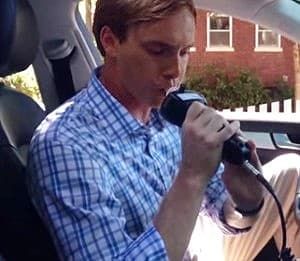You’ve been arrested, breathalyzed, booked and possibly even convicted of DWI. Things look pretty bad, and now the prospect of an ignition interlock is already looming. An ignition interlock, or car breathalyzer, is a device that prevents a vehicle from starting if the driver has been drinking.
 The device might be the result of a judge’s order or a DMV requirement. In any case, you’re about to experience a change in your life, and you’re understandably worried.
The device might be the result of a judge’s order or a DMV requirement. In any case, you’re about to experience a change in your life, and you’re understandably worried.
You don’t need to be. In fact, the worst is over. You’ve endured the arrest and booking, the 45-day suspension, the fines, the alcohol assessment, and you’ve been briefed of the other consequences. All that remains is to put the device in our vehicle and use it.
At first it sounds like a chore – taking a breath test every time you drive. But you’ll get used to it fast. It’ll become second nature. You’ll have to set aside some time every 30 to 60 days (depending on your provider) for a monitoring appointment, but that’s not so terrible.
Why is the worst over? Because you’ll soon be back on the road. The ignition interlock will restore your freedom to drive. In its wisdom, the state of North Carolina has decided it makes more sense to have drivers driving rather than sitting at home with suspended licenses. You’ll be able to work, go to school, shop, get counseling and treatment if needed, and do everything else that requires a vehicle. The only trade-off is that you’ll have to demonstrate your sobriety periodically when you drive.
So don’t think of the interlock as a punishment – think of it as your freedom restored by technology. As long as you stay sober while driving, you can get your life together and put it all behind you. All in all, a fair trade-off.
